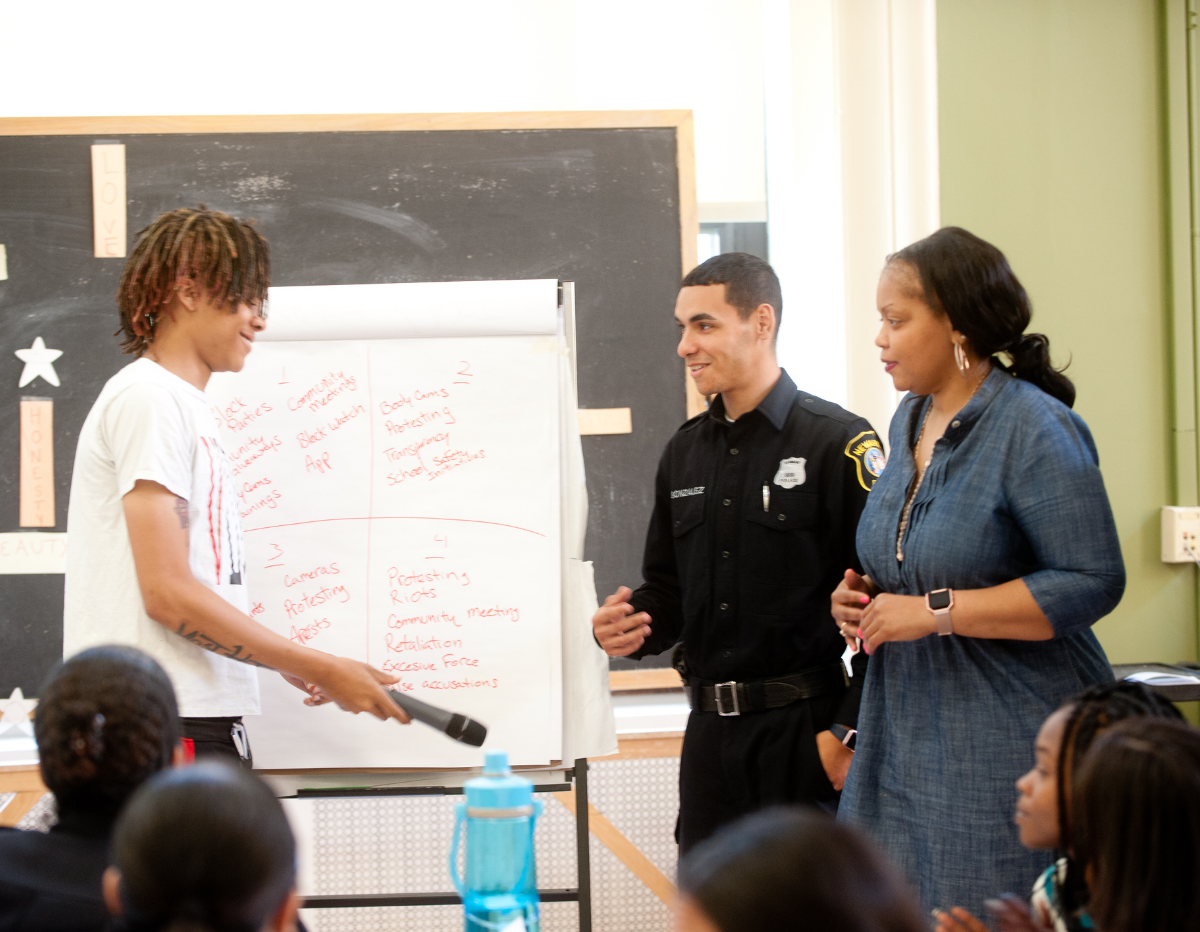
In 2020, at the dawn of a global pandemic, the world witnessed the brutal murder of George Floyd at the hands of a Minneapolis police officer. The collective response included uprisings in cities across the nation; calls to defund the police, to climate qualified immunity, and the demand for the immediate imprisonment of Derek Chauvin, George Floyd’s killer.
Something was largely missing from the national conversation, though. We weren’t talking about the trauma of witnessing police murder another Black man — especially as its felt by those who live in heavily policed neighborhoods everyday.
Many in Newark, NJ, were prepared for a different conversation. The Brick City is led by Mayor Ras Baraka, who committed to building a police department, and an entire city, , that understands the community’s trauma and addresses it. To that end, he brought our Trauma to Trust program into the city with the goal of addressing the impact of law enforcement on community.
The traditional format of Trauma to Trust is intense, and hard work: 16 hours, spread across two days, with anywhere from 15 to 25 community members and law enforcement agents in the same room. Given the health risks of the pandemic, that format was impossible, even though the trauma-informed training was more necessary than ever. So like every other event in 2020, we had to make Trauma to Trust a virtual experience.
Initially we had no idea how to transition an intensive training, designed for healing and transformation, to an online format. How could we bring the person-to-person connection, the deep discussions, and organic healing to a virtual platform?
In the end, we knew it was impossible to recreate the sort of safe space required for the full trauma training online, so we decided to create a triage training of sorts. We built the Trauma To Trust Primer, a two-and-a-half hour conversation on trauma and policing, designed to ensure that community members had a safe space to communicate their needs and law enforcement officers had a space to understand the concerns of citizens.
This primer is not intended to replace the full training but to hold space for the immediate impact that traumatic events can have on communities. Even community members who had already experienced the full, in-person training returned for a much-needed “safe space” in the madness of the pandemic.
As we move into a post Covid-19 world, we are taking all of the lessons we’ve learned into a new and improved, in-person training, when safety allows. The virtual primer has allowed other cities to discover our work as they explore how to transform their cities through trauma-informed policing. Until we can gather again, we will use the tools we have to ensure that we continue to have these conversations, push the needle forward, and demand for ourselves and our civil servants a commitment to reimagining justice in our communities.



